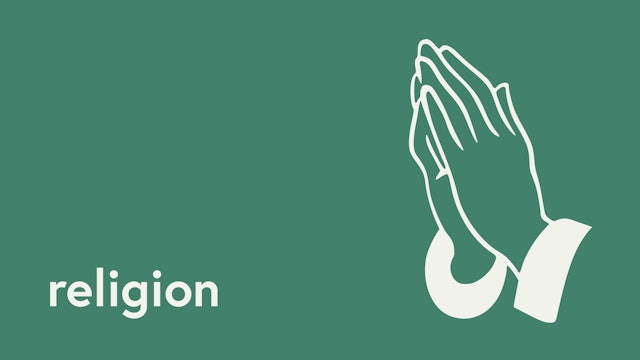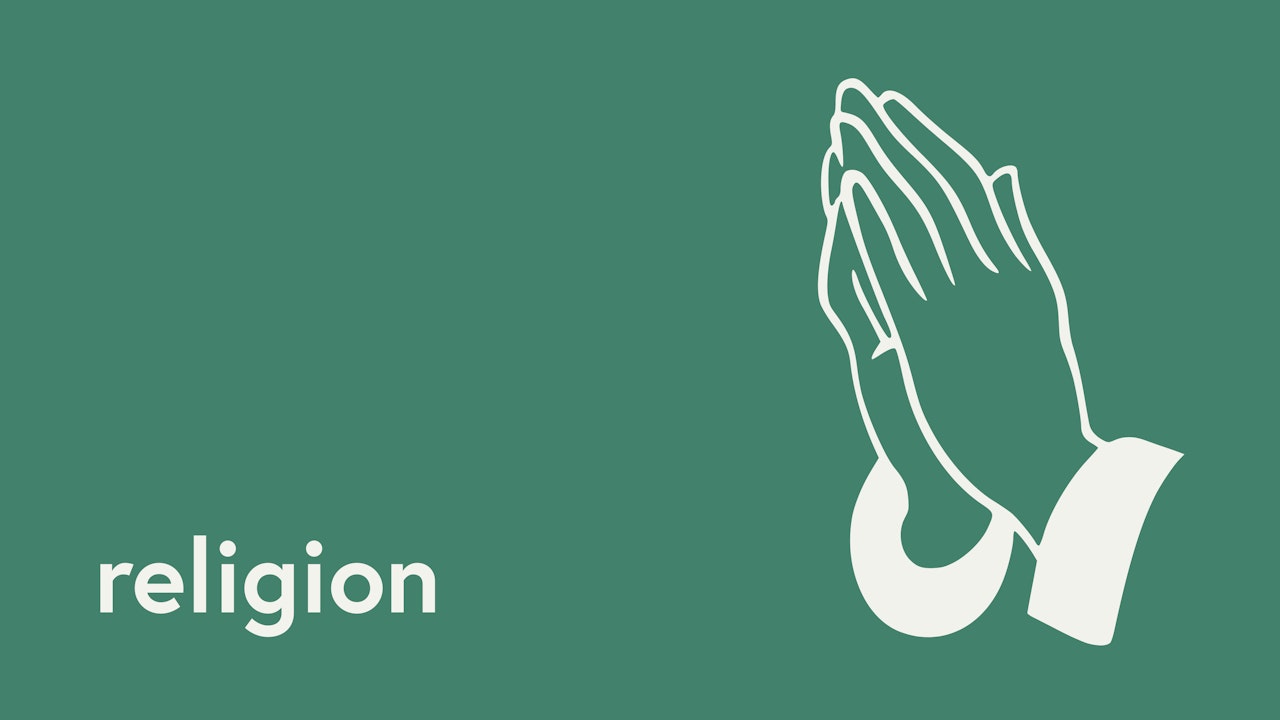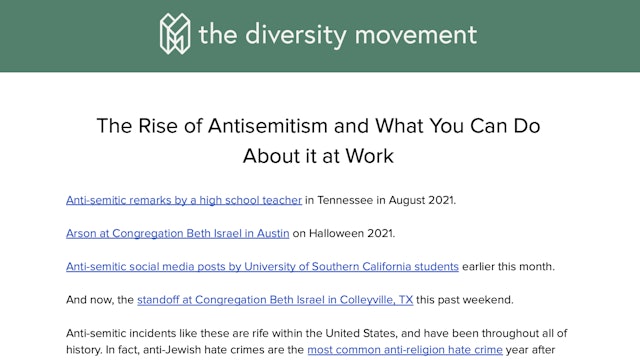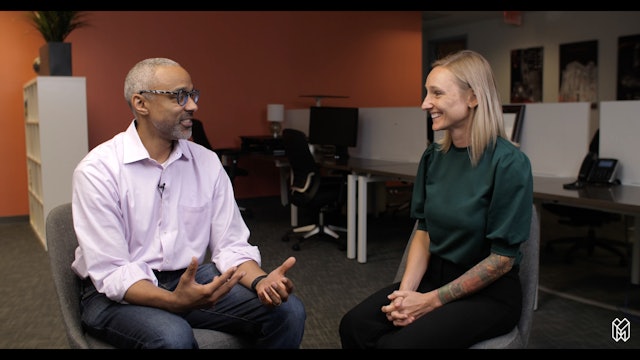-
Why Is It Important to Understand Other Religions?
In today's multicultural workforce, an understanding of the different religions that people practice isn’t just a sign of respect—it’s a competitive business advantage. Discover the importance of learning about different religions and spiritualities.
-
Difference Between Atheist and Agnostic
Gain clarity on the difference between the terms atheist and agnostic. Discover that atheist and agnostic employees are protected by the same anti-discrimination laws that protect religious beliefs and practices. Confirm the importance of workplace inclusion of all religions, spiritualities, and ...
-
Religious Demographics of the United States
The United States is a country of many different religious traditions. 65 percent of the population identifies as Christian, 29 percent identify as nonreligious, and the rest belong to religions such as Judaism and Islam. Here’s a deeper look at America’s religious demographics today.
-
What is Mormonism/The LDS Church?
The Church of Jesus Christ of Latter-day Saints is often known informally as the LDS Church or Mormon Church. The first major religious group born in America and not derived from a colonial population, the LDS Church spread quickly with the migration of church members to Utah and surrounding states.
-
How To Prevent Antisemitism in the Workplace
Get helpful best practices for acting against antisemitism in the workplace. Confirm the importance of educating all employees about Judaism and setting policies that promote respect and religious tolerance.
-
The Rise of Antisemitism and What You Can Do About it at Work
96.7 KB
-
Islam, Muslim, or Islamic? Religious Terminology 101
When working with Muslim colleagues and customers, it’s important to understand the difference between the words Islam, Muslim, and Islamic. Here’s a brief overview of what they mean and why that difference is important.
-
Why Do Some People Wear Headscarves As Part of Their Religion?
Confirm the importance of respecting the head coverings worn by many people of different religions to convey humility, modesty, spirituality, and respect. Get a more detailed understanding of head coverings in Islam, Judaism, and Sikhism and the values they represent.
-
What Is Hinduism?
Improve your familiarity with Hinduism the third-largest religion worldwide, with over 1.2 billion followers. Find out more about the Hindu religion’s diverse array of beliefs and cultural traditions. Identify ways for you and your organization to be inclusive of Hindu colleagues and customers.
-
What is Diwali?
The Diwali festival, also known as Divali or Deepawali, is a holiday that’s widely celebrated by people from a variety of religions and countries. Here’s an overview of this celebration honoring the triumph of good over evil.
-
Best Practices for Inclusion of Muslim Employees
Islamophobia is all too common in Western society. Here’s how to prevent it in your workplace and ensure Muslim employees have everything they need to feel safe, included, and accepted at work.
-
What is Passover?
Explore the basics of Passover, a spring Jewish holiday that celebrates the liberation of Jewish people from slavery in Egypt. Learn what a seder
is, why Jewish people eat matzah during Passover, and how to be inclusive and supportive of your Jewish coworkers. -
What Does It Mean To Eat Halal?
Muslim people who eat halal follow specific dietary guidelines derived from the Quran. These guidelines include avoiding pork, alcohol, and eating only meat that has been prepared according to Islamic dietary laws.
-
Parallels Between DEI in the Classroom and Workplace
While inclusive language has advanced in the classroom and in the workplace, it isn't in identical ways. Learn what each can learn from the other in terms of inclusion.
-
Common Anti-Muslim Microaggressions To Avoid
Anti-Muslim microaggressions hurt Muslim individuals in ways that are subtle and possibly indirect. Challenge these episodes by identifying them, preventing them and addressing them in the workplace.
-
What is the Seventh-Day Adventist Church?
Get a helpful overview of the Seventh-day Adventist Church, its key values, and what differentiates it from other Christian denominations. Learn why scheduling flexibility and vegetarian menu options are helpful to Seventh-day Adventist employees.
-
What Does It Mean To Keep Kosher?
Get a quick overview of the Jewish practice of “keeping kosher.” Learn the basic dietary guidelines dating back thousands of years that some Jewish people follow today. Confirm the importance of making kosher food options available in your company cafeteria and at corporate events.
-
Best Practices for Being Inclusive of Jewish Employees
Antisemitism in the workplace is often casual and unintentional, but nonetheless real and anxiety-provoking. These best practices will help you ensure your Jewish employees feel safe and respected.
-
What Is Islamophobia?
Gain a deeper understanding of Islamophobia, fear and hatred expressed toward Muslims. Examine the root causes of Islamophobia and its negative impacts on society. Learn to recognize Islamophobia in the workplace and what actions to take to address it.
-
Is Buddhism a Religion or a Philosophy?
Learn more about Buddhism, a spiritual practice that is followed by as many as 535 million people around the world. Consider why Buddhism can be considered a philosophy, a way of life, and a religion.
-
Common Anti-Jewish Microaggressions to Avoid
Microaggressions in the workplace can take a significant emotional toll. Antisemitic microaggressions are all too common, as antisemitism and antisemitism attacks have seen an increase in recent years. Learn common microaggressions to be aware of and avoid.
-
What Is Sikhism?
Get a basic understanding of Sikhism, the world’s fifth-largest religion. Learn where and when Sikhism originated. Explore the central elements of Sikh philosophy. Consider why learning about the world’s religions helps build cultural competency and stronger organizations.
-
What is a Hijab?
A hijab is a religious veil worn by many Muslim women as an expression of faith that usually covers the head and chest. The Quran, or holy book of Islam, instructs Muslim people to dress modestly. Hijab styles vary across the globe.
-
Is It Illegal to Fire Someone For Their Religious Beliefs?
In the United States, religious discrimination in the workplace is illegal when it comes to all aspects of employment, including hiring, firing, interviewing, promotions, compensation, layoffs, and benefits.


























